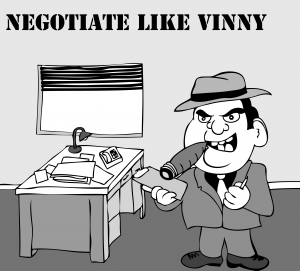The Art of Negotiating with Suppliers

Negotiating with Suppliers (8) General Points
The art of negotiation comes in useful in all aspects of life and is a skill many people struggle with. If you are an Agent or representative of a company, this is one task you should embrace and make every effort to develop. There is no question that skilful negotiators are able to achieve the very best deals with Suppliers which can lead to improved margins and profits for your company.
Here are a few tips and points to consider when you find yourself negotiating with Suppliers:
- Always attempt to research the “should be” costs (more on this in an upcoming post) of the product you are dealing with – if you know how much of a mark-up your Supplier has then it can help you determine whether you are in fact receiving a good deal. Better yet, if you understand the manufacturing costs it puts you at an even stronger position when it comes time to negotiate.
- Build a rapport with your Supplier’s. In order to negotiate the best deals – be attentive, listen, respond to any issues they have and improve communication. The better the working relationship is with your Suppliers, often better terms will be negotiated.
- Find areas of mutual gain – if your supplier stands firm and won’t budge on price then it might be time to focus on other areas instead. For example, payment terms, down payments, length of warranty, discounts for volume purchases, discounts for contract extensions, etc. If you can come up with something which benefits both parties you are onto a winner.
- Get quotes from (more…)


 Part Two of Four
Part Two of Four